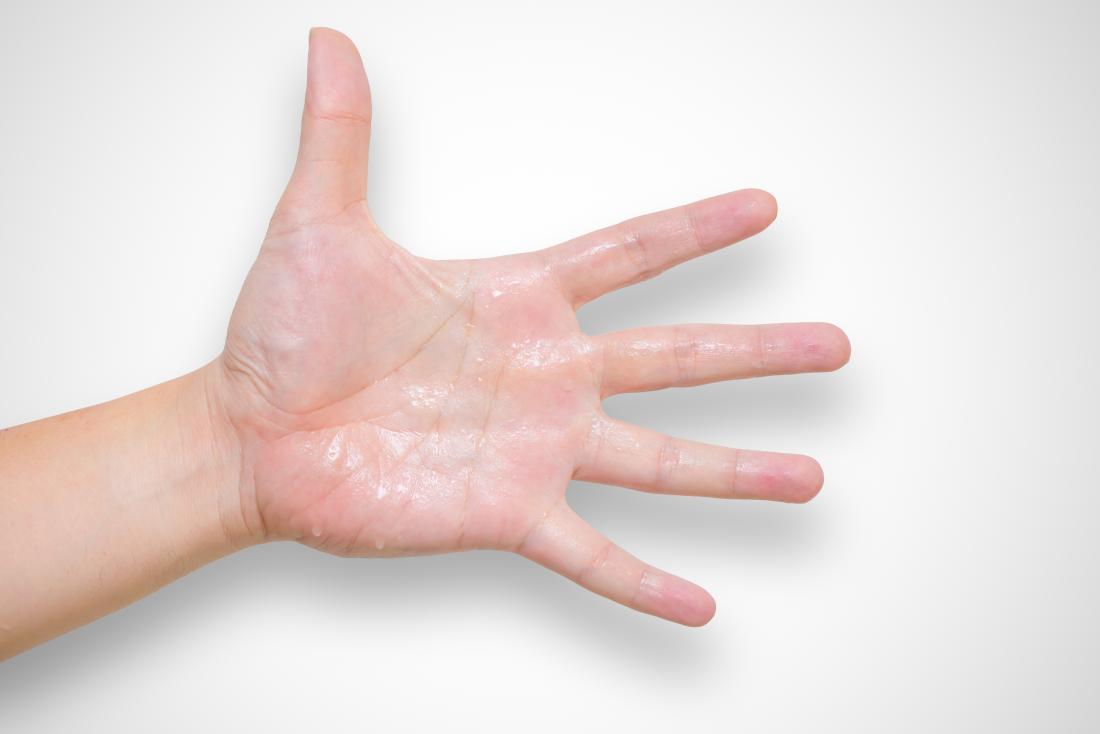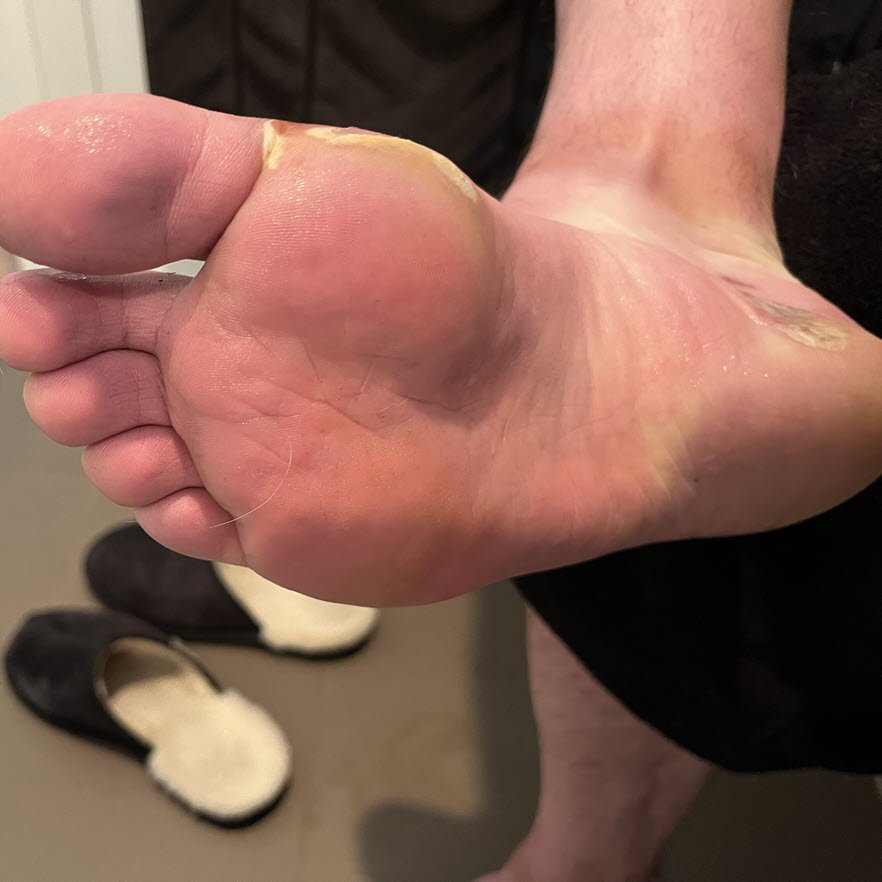Recognizing the Origin of Excessive Sweating and Its Influence On Daily Life
Extreme sweating, likewise recognized as hyperhidrosis, is a condition that affects a considerable section of the populace, yet its underlying causes and ramifications on everyday operating continue to be somewhat enigmatic. While it is typically comprehended as a physiological action to manage body temperature level, the triggers for excessive sweating can vary widely among individuals, including not only physical aspects yet additionally psychological and emotional elements. The impact of this problem expands past plain pain, commonly affecting social communications and general high quality of life. By delving into the origin of hyperhidrosis and discovering its multifaceted results, a much deeper understanding of this prevalent problem can be gotten, clarifying the complexities that individuals facing too much sweating browse daily.
Physiology of Sweat Glands
The law of sweat production, an essential physical process, is largely managed by the task of sweat glands dispersed across the human body. Gland are categorized right into two primary types: eccrine and apocrine glands. Eccrine glands are one of the most numerous and are located in mostly all locations of the body. They play an important duty in thermoregulation by secreting a watery liquid onto the skin's surface area, which helps and vaporizes cool down the body down. On the other hand, apocrine glands are focused in locations rich in hair roots, such as the armpits and groin, and their secretions are thicker and milky in look.
When the body temperature level rises, either because of physical task, high temperatures, or emotional stress and anxiety, the nerves sets off the gland to generate sweat. This sweat is composed mainly of water and electrolytes like salt and chloride. The procedure of sweat manufacturing is important for preserving the body's interior temperature level within a slim, optimal range, highlighting the important duty gland play in human physiology.
Triggers for Excessive Sweating
In understanding the origin of extreme sweating, it is vital to recognize the triggers that can bring about this physical response. Excessive sweating, also called hyperhidrosis, can be triggered by different aspects, both physical and environmental. One typical trigger is emotional tension or stress and anxiety, which can promote the body's sweat glands to create more sweat than is required for cooling. Physical exertion, high temperatures, and spicy foods are also recognized to cause too much sweating in individuals prone to this condition. Certain clinical problems like diabetes mellitus, menopause, or hyperthyroidism can contribute to too much sweating as well.
In addition, medicines such as some antidepressants, opioids, and particular supplements can likewise act as triggers for hyperhidrosis. Recognizing these triggers is vital in managing extreme sweating effectively - How to stop sweaty hands. By recognizing and dealing with the details triggers that prompt too much sweating in an individual, medical care companies can create individualized therapy strategies to minimize this problem and improve the individual's lifestyle
Medical Conditions Associated
Connected with too much sweating are various medical problems that can exacerbate this physiological reaction. One usual condition is hyperhidrosis, a condition defined by extraordinarily enhanced sweating that surpasses the body's thermoregulatory demands. This can manifest in focal areas like the palms, soles, underarms, or face, affecting a person's lifestyle due to social humiliation and pain.
Furthermore, endocrine disorders such as hyperthyroidism, diabetes, and menopausal hot flashes can also lead to excessive sweating. Hyperthyroidism causes an overproduction of thyroid hormonal agents, increasing metabolic rate and causing sweating. Diabetes mellitus can generate sweating episodes, especially during hypoglycemic episodes when blood glucose levels drop also reduced. Menopausal hot flashes, credited to hormonal fluctuations throughout menopause, can trigger unexpected and intense sweating, commonly gone along with by flushing and heart palpitations.
Furthermore, infections like hiv, endocarditis, and tuberculosis have actually been related to night sweats, an usual sign recognized to interrupt sleep and influence general health. These medical problems highlight the diverse variety of underlying aspects that can add to too much sweating, requiring thorough analysis and management by medical care professionals.
Emotional and emotional Variables

Effect On Social Interactions
Too much sweating can have profound impacts on an individual's capability to involve comfortably in social communications. The noticeable signs of sweat spots or damp patches on garments can lead to humiliation and self-consciousness, creating individuals to withdraw from social scenarios. This withdrawal can influence relationships, limitation social tasks, and hinder specialist and personal growth.

Additionally, the anxiousness and self-esteem issues stemming from extreme sweating can impact communication and interpersonal skills. Individuals may have a hard time to concentrate on discussions, join team tasks, or reveal themselves with confidence. This can cause sensations of seclusion and solitude, as social connections end up being challenging to maintain.
Conclusion

While it is frequently understood as a physiological feedback to link manage body temperature, the triggers for excessive sweating can differ extensively among individuals, incorporating not just physical elements but emotional and likewise emotional components. By diving into the root triggers of hyperhidrosis and exploring its multifaceted results, a deeper understanding of this prevalent problem can be gained, losing light on the complexities that individuals grappling with extreme sweating navigate on a day-to-day basis.
Physical effort, high temperature levels, and spicy foods are likewise known to cause excessive sweating in people susceptible to this problem. By determining and addressing the certain triggers that prompt extreme sweating in an individual, health care companies Recommended Site can create customized therapy plans to relieve this condition and boost the individual's high quality of life.
Too much sweating can have profound impacts on a person's capability to involve comfortably in social interactions.